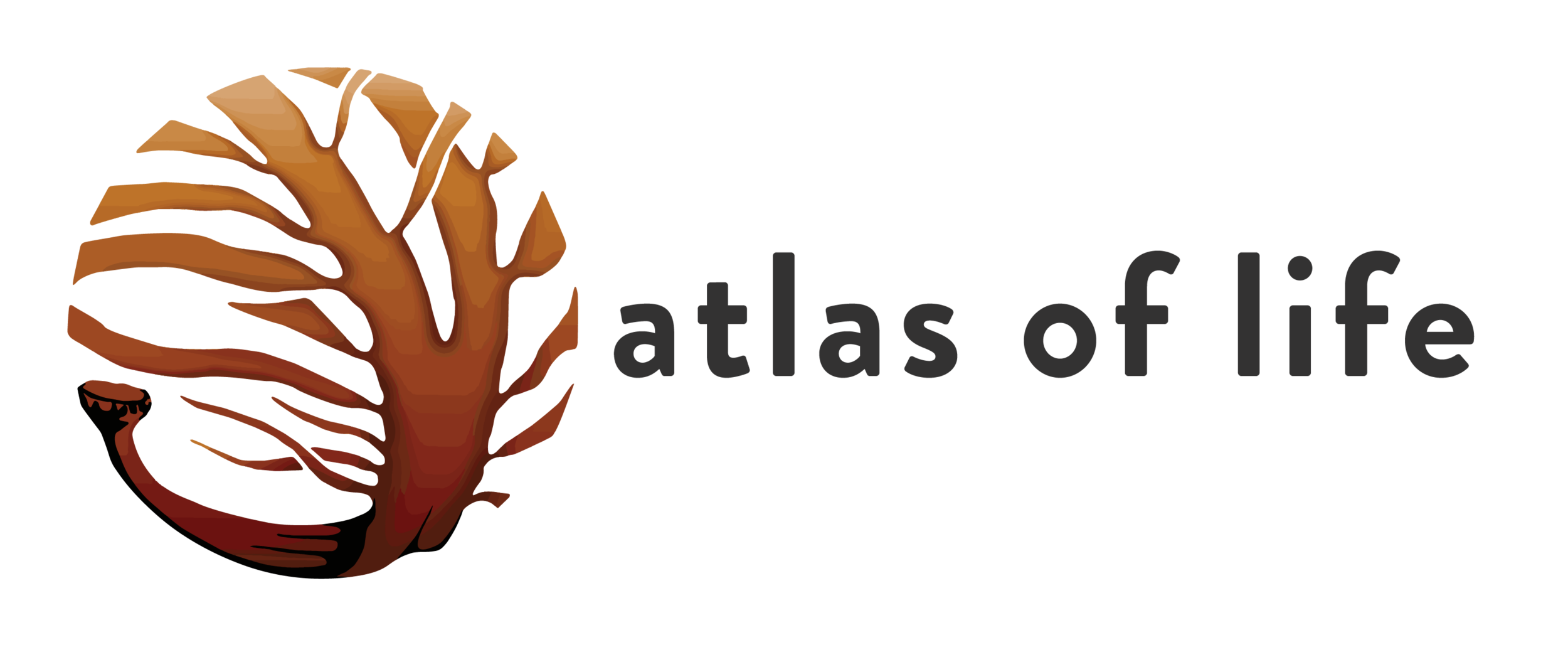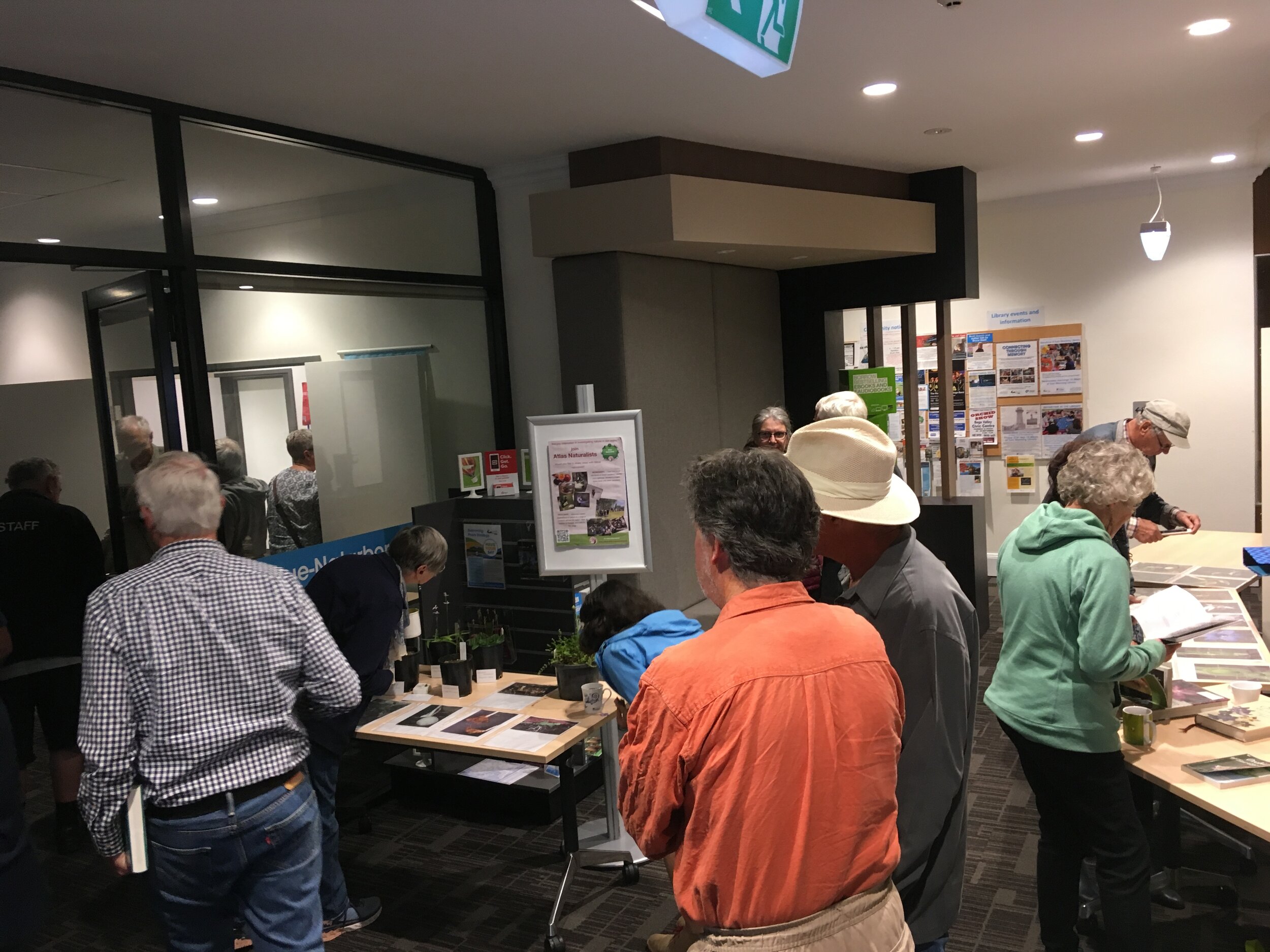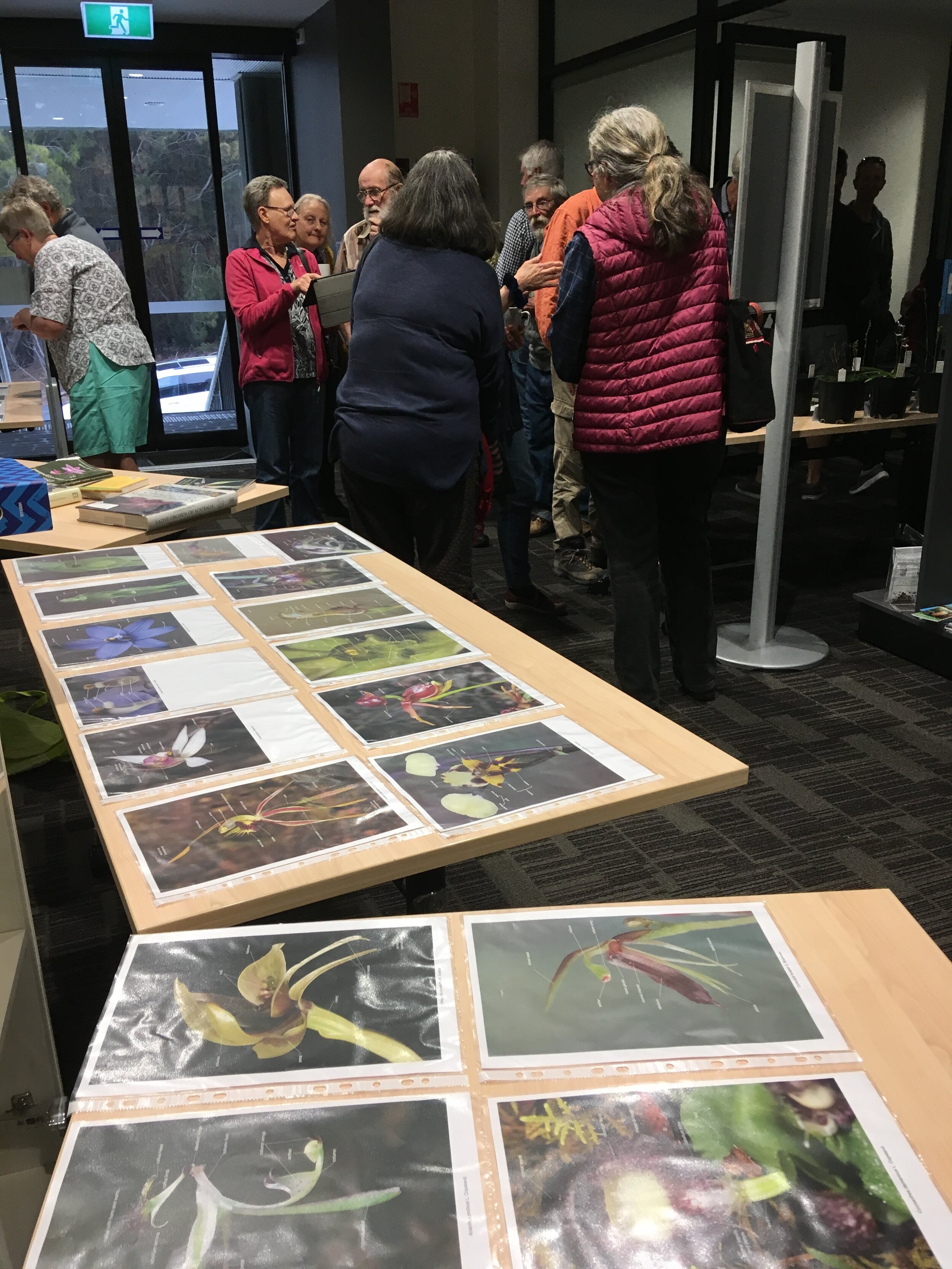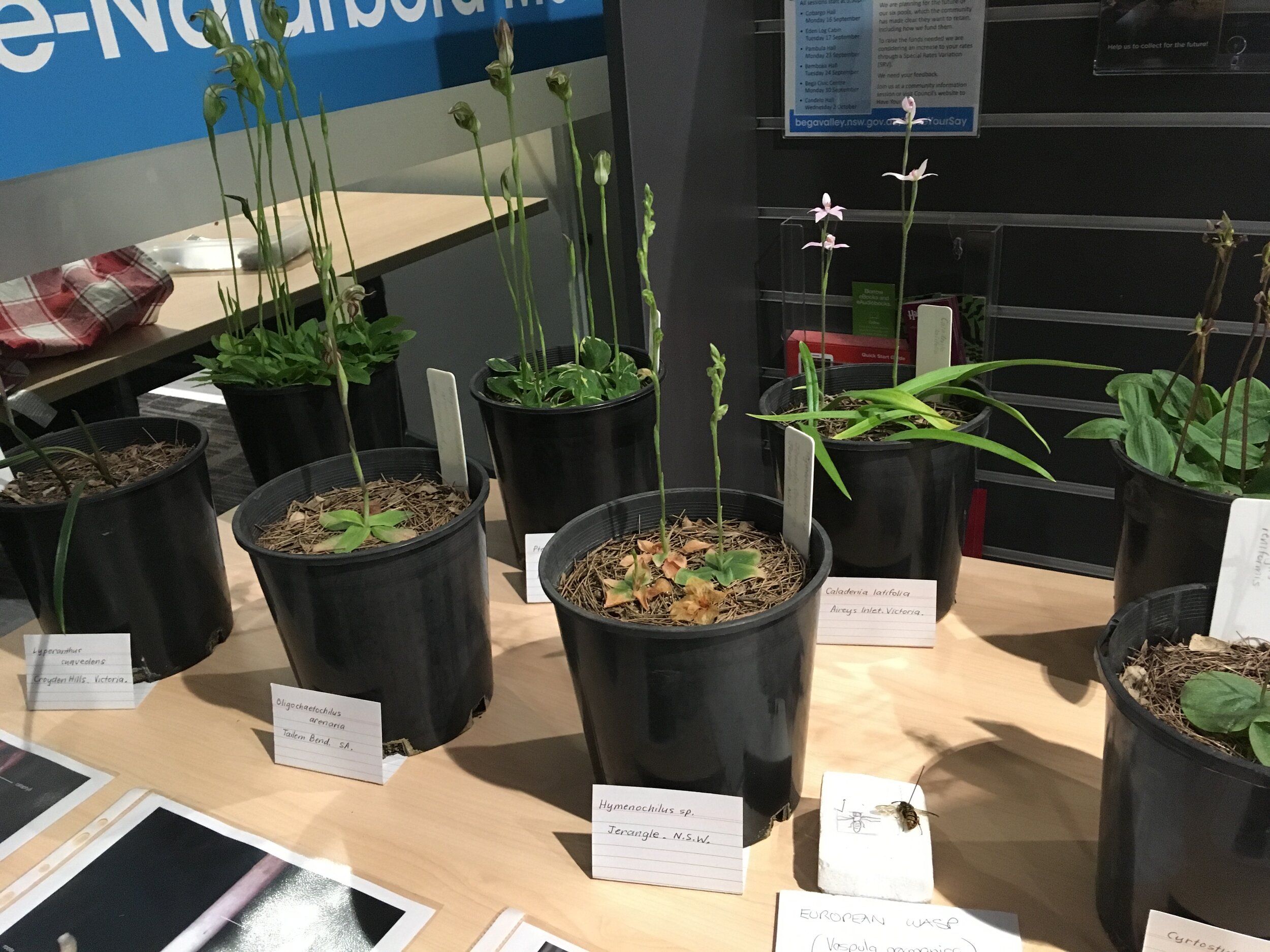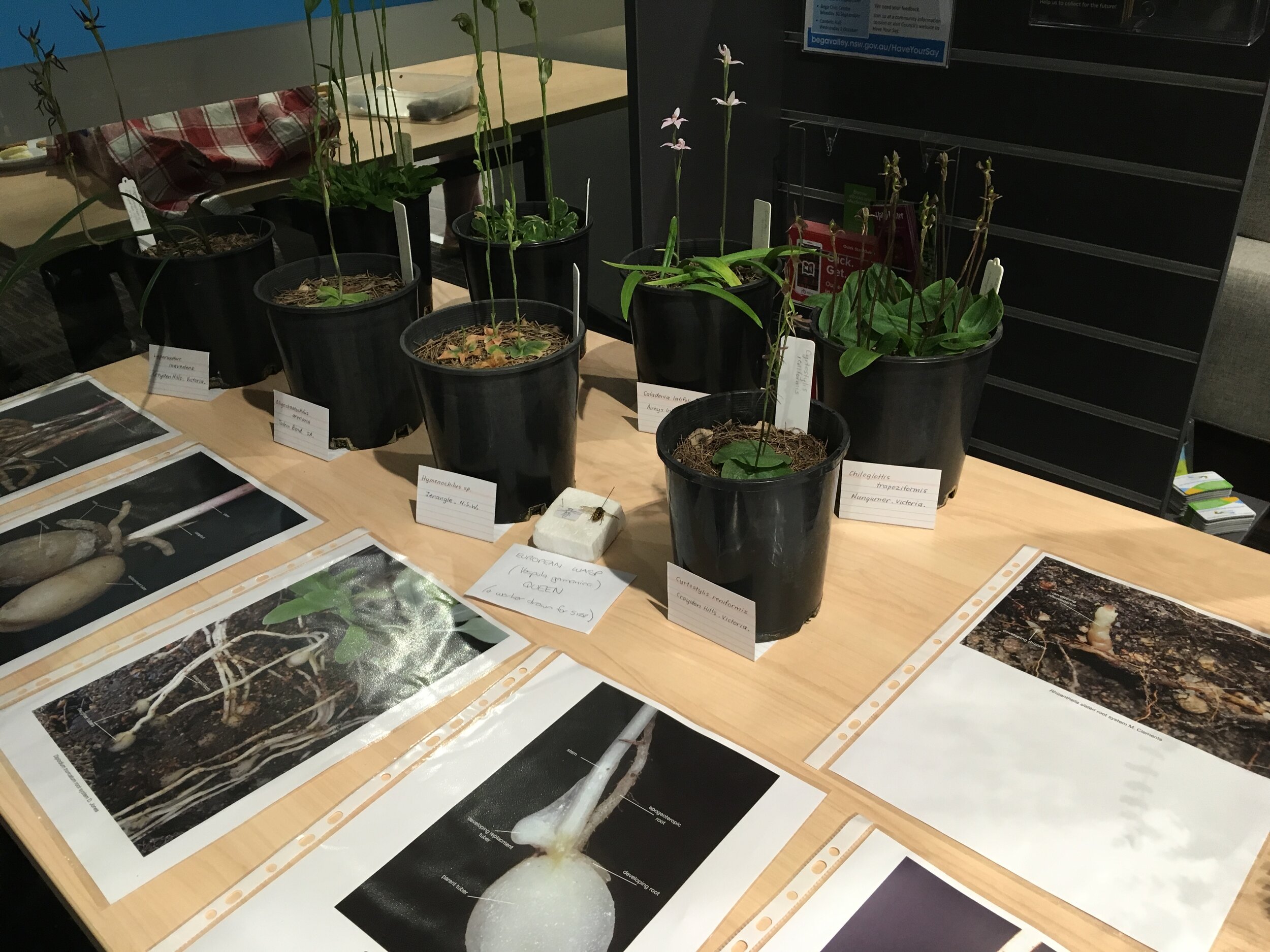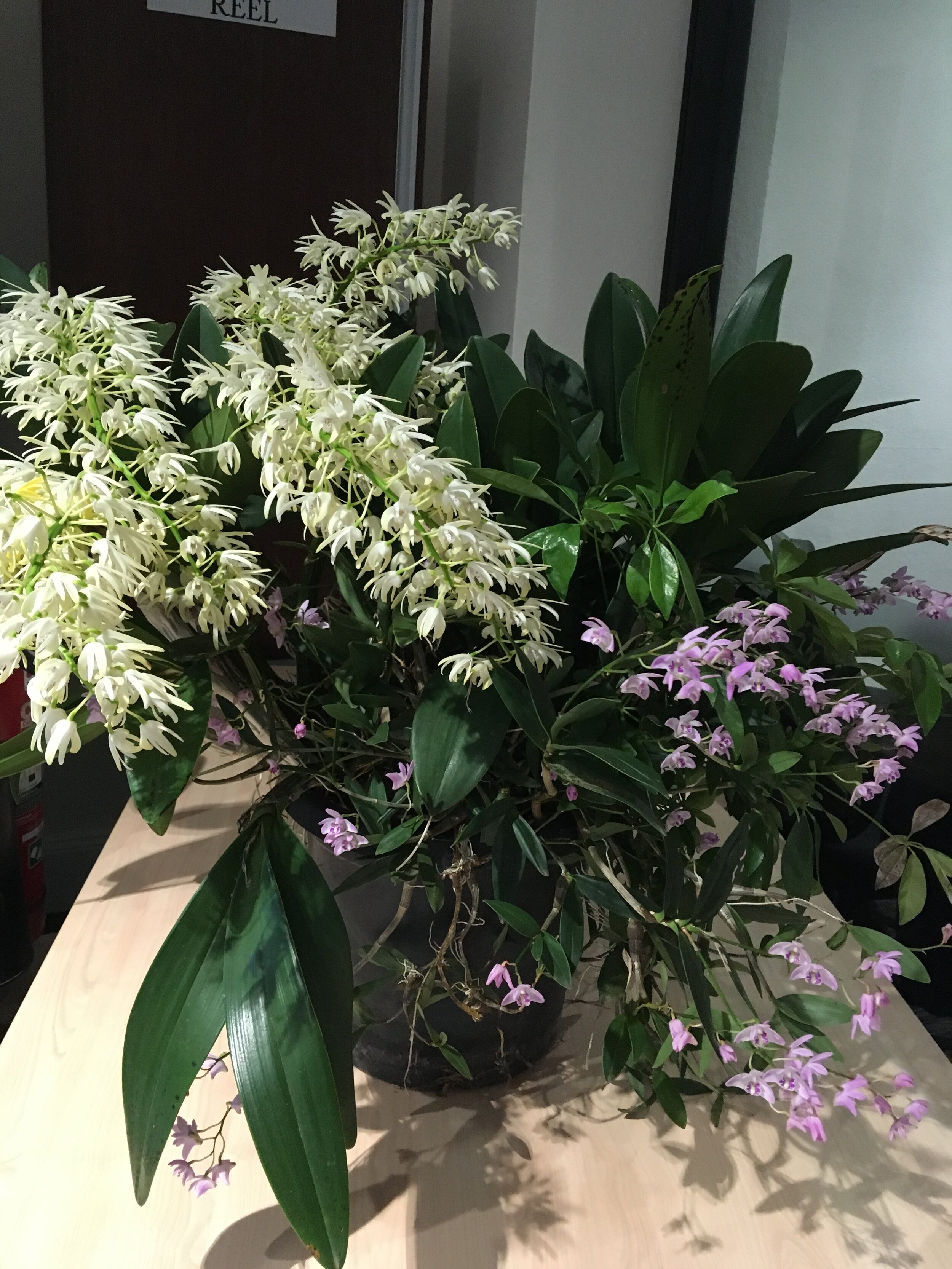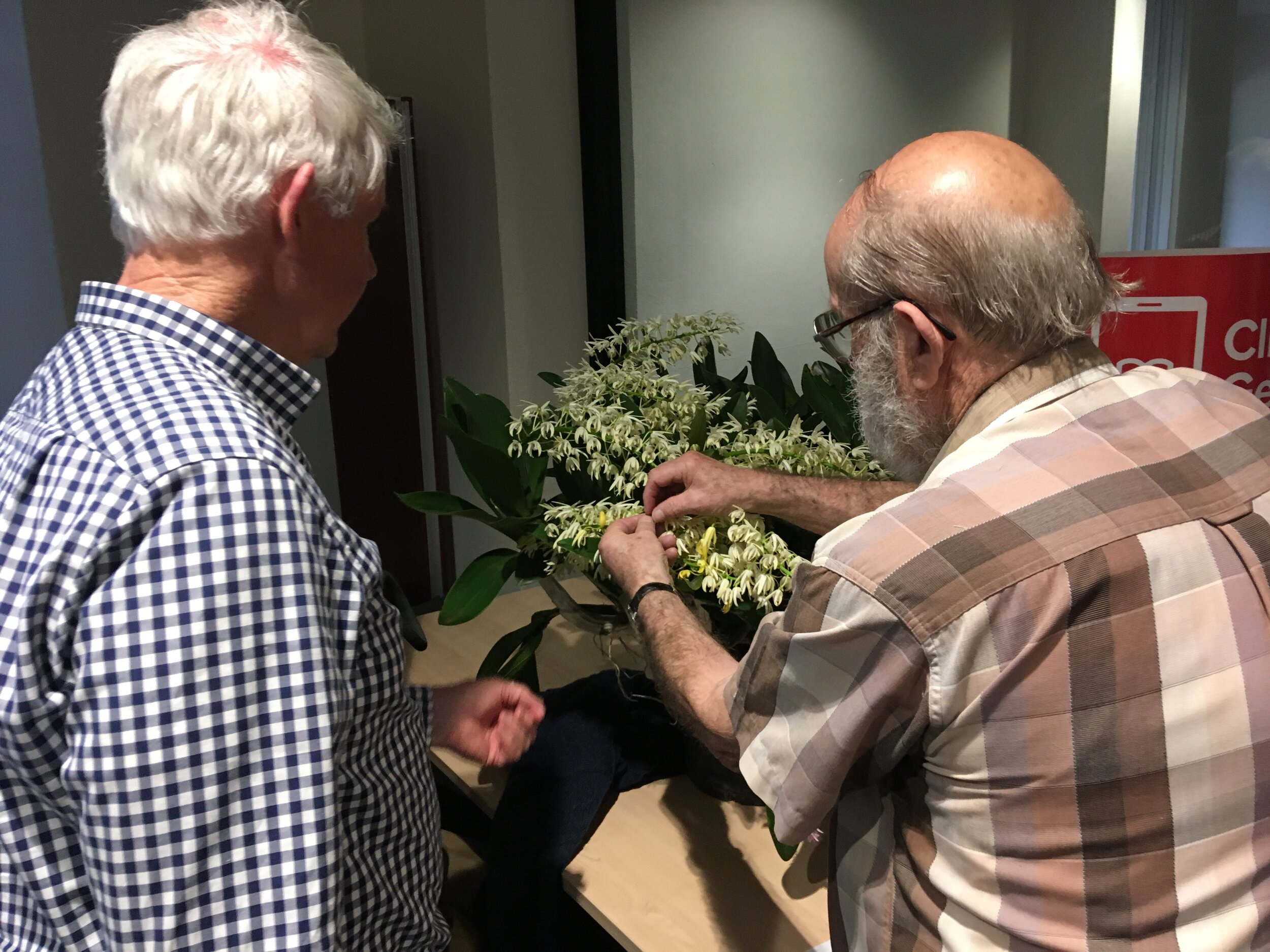Presentation: Orchids with David Jones
ATLAS NATURALISTS FIELD DAY
21st SEPTEMBER, 2019
SUMMARY & FOLLOW-UP
A captivating presentation, a renown expert, a room full of naturalists. The perfect storm!
David Jones has been studying native orchids since he was 16 years of age. His passion for Australian native plants has defined his professional career. Horticultural research, authorship of books and scientific papers, taxonomic studies of Australasian orchids. A wealth of knowledge and experience … and David shared this with us yesterday.
“Orchids are where you find them”
Among many insights into orchid biology and ecology, David stressed that there are no guarantees when it comes to searching for orchids. There are no accurate ways of predicting where they will grow. Many apparently suitable sites never produce an orchid, yet orchids can appear in the most unlikely places.
Terrestrial orchids are often small and some are highly cryptic. Not always easy to find but knowing something of their biology certainly helps.
Here are just a few of the messages that I took away from David’s presentation.
The importance of finding the right fungus
Orchid seeds require a fungal partner in order to germinate, grow and survive. And not just any fungus will do. If the fungus isn’t available the orchid seed will simply die. And some of these orchid-associating fungi also form associations with trees. For example, the well known Dipodium orchids rely on fungi that rely on Eucalyptus trees. There’s a good reason that you find these impressive blooms growing in Eucalypt forests!
Dipodium - leafless and reliant upon a eucalypt-associated fungus
Where orchids grew last year predicts where they’ll grow again
Orchids develop a pair of tubers – one feeds it now, the other is a larder for next season’s growth. If the larder is filled this year, a new flower will appear next year. But only if conditions are right.
Most orchid seeds land close to home. They are lightweight and winged, so they can be carried long distance on air currents, but many typically don’t travel so far. Which makes sense. After all, the fact that the parent plant survived means that conditions are good at home.
Some orchids form clones. That is, they reproduce vegetatively. Tiny mosquito orchids always form a colony. Each plant produces a series of specialised roots that radiate around the parent plant. At the end of each root a tuber grows. And next season each of these tubers gives rise to a new plant, genetically identical to the original parent plant.
Only some orchids pay their pollinators
Sweet liquid is irresistible for many insects. It’s not just bees that love sugar. Butterflies, flies, wasps, moths, and ants are all attracted to nectar. This presents flowers with both an opportunity and a challenge. How to ensure that the visiting insects, paid in nectar, reliably deliver pollen to another plant of the same species.
Orchids adopt a variety of strategies to solve this problem. Famously, many of them cheat! They attract specific insect pollinators with the promise of food or a mate – but deliver neither.
Mingling after David’s talk, we marvelled at live orchids brought in by Graeme Krake and David Jackson. A gallery of photos explained special orchid features and pollinator interactions. And people keenly sought David’s advice on all-things-orchid.
Today, when I discovered several orchids just metres from our house, I looked at them with fresh eyes. I thought of their fungal partners and found myself searching for visiting insects.
The above summary is simply my own interpretation and recollection of the day. Any factual errors are mine, not David’s. The orchid photos are from my own collection, shot locally in recent years. (Kerri-Lee Harris, 22/9/19)
And if your orchid hunger hasn’t been satiated…
I’ve chanced across a great website by a Canberra PhD student, Tobias Hayashi. Tobias is investigating the pollination of greenhood orchids. He is also a skilled photographer and science communicator, as a look at his website will testify. (Paul)
New to Atlas Naturalists? Learn more, including how to sign up for news and updates
